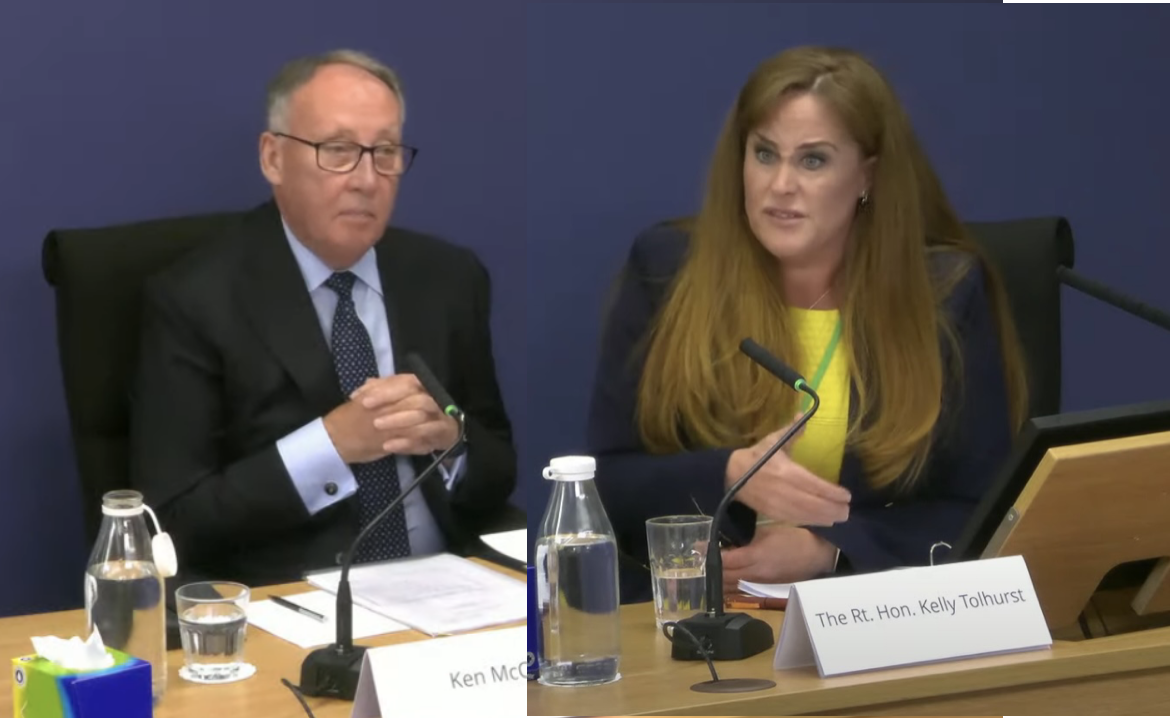
Ken McCall was brought into the Post Office in 2016 as a non-executive director (NED) because the Post Office chairman Tim Parker thought he would be a “good fit”. We were told this was because of McCall’s experience running a delivery business (TNT) in China and being responsible for EuropCar and its IT function in Europe, but it may well have been because he was a mediocre talent joining a mediocre board.
McCall did no due diligence before joining the Post Office (for due diligence, read “basic Google search”) and was entirely unaware when he accepted the job that there was a campaign group called the Justice for Subpostmasters Alliance which had been in existence for six years, and a recent Panorama programme wondering if the Post Office had been responsible for miscarriages of justice.
As the Senior Independent Director (SID, the top NED) McCall told the Inquiry he was responsible for reviewing Parker’s performance and was a “conduit” for the other non-executive directors if they needed any help or advice. McCall also said he was there to pass any of the NEDs’ concerns to Parker, should they arise. “In simple terms,” he told the Inquiry “I was eyes and ears.”
The wisdom of giving this role to McCall soon became apparent when Sam Stevens, asking questions for the Inquiry, referred to the Clarke Advice, a pivotal document, central to the entire scandal, which was sent to McCall by the Inquiry to help him with his evidence.
“Did you read it when preparing this statement?” asked Stevens.
“No I did not, because I wasn’t in position in 2013.” replied McCall.
“Are you aware of what this document says?” tried Stevens.
“No I’m not”, said McCall.
Just the sort of chap any board would want as their eyes and ears.
“I don’t” McCall
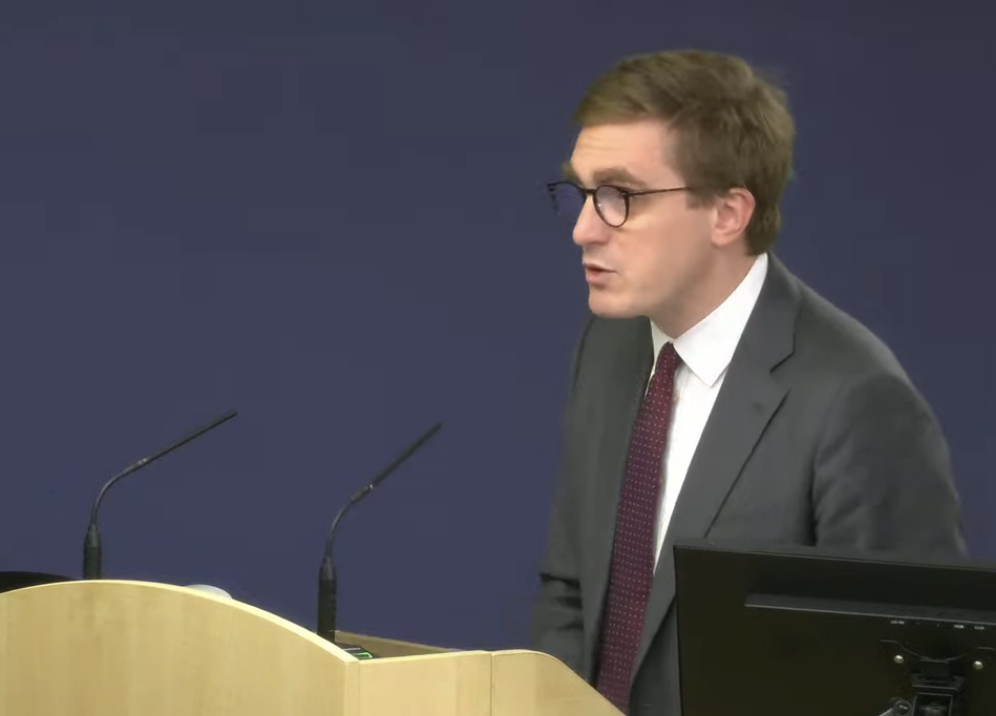
Stevens tried McCall on what is now called the Swift Review, a report written for the Post Office chairman Tim Parker by a barrister called Jonathan Swift QC. At the time it was called the Chairman’s Review, initially commissioned by the then Post Office minister Baroness Neville Rolfe in 2015. It was in the process of being put together by the time McCall joined the Post Office board in January 2016.
“I never was aware of the Swift Review until I saw the documents provided by the inquiry”, announced McCall. Stevens probed this. McCall was adamant – he knew nothing about the Chairman’s Review and he knew nothing about the involvement of someone called Jonathan Swift.
Stevens took him to Jane MacLeod’s witness statement. MacLeod is the former Post Office General Counsel (top in-house lawyer) who is refusing to give oral evidence to the Inquiry. Stevens read that MacLeod remembered McCall “asked a question at a board meeting as to whether the board would be briefed on the findings of the Chairman’s Review.” MacLeod added that she had thereafter “provided an oral briefing to the board… as well as a summary of the further work being undertaken following the Chairman’s Review.” MacLeod also claims she told the board “that the full report was available on request.”
“Do you disagree with Ms MacLeod’s recollection?” asked Stevens.
“I have never, and I stress again, I have never seen that report”, replied McCall, confidently.
Stevens took McCall to an email written on 16 September 2020 by the UKGI Post Office NED Tom Cooper. The email was sent to various senior figures at UKGI and the Business Department’s Permanent Secretary. It says “just to update you that Ken McCall, the Senior Independent Director, has confirmed that, having spoken to other members of the board… he does not think it appropriate to take action in relation to Tim Parker’s decision-making around the QC’s review in 2015 of Post Office’s handling of the Horizon complaints. His rationale is the same as reported previously – Ken believes Tim made a significant error of judgment in accepting legal advice that the QC’s report and as a consequence of the follow-up work should not be shared with the board.”
McCall told Stevens his recollection of that conversation with Cooper was very different.
“I wasn’t aware what anything was called”, he said. “I don’t recall the term Swift and I don’t see it in this document and I’ve not seen it in anything that’s been provided to me… my understanding is that the chairman conducted a review. I did not know what it was called or what it was and it wasn’t shared with the board, but the name of Swift was not known to me.”
Stevens was bemused. How did McCall decide that by withholding this unnamed report (which McCall knew nothing about and which had been written by a man he’d never heard of) Parker had made a “significant error of judgment”?
McCall couldn’t recall. “I mean we’re talking four years ago or thereabouts. I don’t specifically recall the exact conversation, but the chairman had commissioned a report and it’s not been shared with the board. That is the essence of the conversation. There was no reference to Swift, there was no reference to a QC, and so I don’t understand how Tom knows those facts about a QC’s report. I certainly didn’t know those factors.”
Stevens took McCall to an email sent to him by Tom Cooper on 30 July 2020. This contained two attachments, one of which was called “QC Post Office Review – 7 Feb 2016”. In the email, Cooper wrote: “As promised yesterday, please find attached a copy of the QC’s report prepared for Tim in 2016.”
Stevens wondered it if was likely that McCall saw the email sent on 30 July 2020, read the QC’s report and then communicated his views to Cooper reported in the 16 September 2020 email. McCall held firm. “I believe I would remember or have remembered if I saw a document such as this”, he told Stevens.
This left Stevens puzzled. “So are there two options really” he said. “One is your recollections inaccurate and you did receive it and read it, or, secondly, an obviously important report that you were sent, you didn’t open?”
Perhaps deciding being confidently wrong in retrospect was a better look that contemporaneous incompetence McCall plumped for “the former – in that I have no recollection of receiving the Swift report”. Even though in documents provided to him by the inquiry he clearly did receive it. And then incorrectly stated that he didn’t after missing the same information twice. Eyes and ears, lads… eyes and ears.
Remote recollection
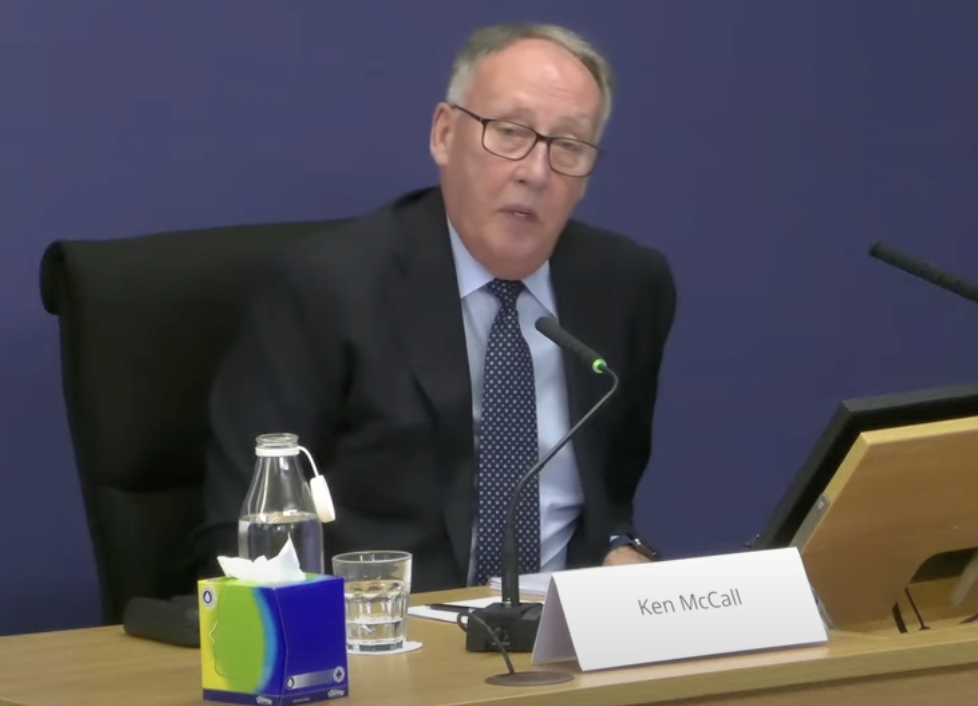
Stevens moved on to an email sent on 22 April 2020 by McCall after a board meeting. McCall wanted the meeting’s minutes changed to reflect the NEDs’ “complete unawareness” of a Deloitte report about the Horizon IT system and their “complete shock” that Fujitsu had remote access to Subpostmasters’ branch terminals.
Stevens took McCall to a minute of a briefing by barrister Anthony de Garr Robinson to the Post Office group litigation board subcommittee, at a meeting held on 21 February 2019. McCall was present. The minute contained the sentence “Fujitsu had said that remote access was not possible. The Deloitte audit had found that it was.”
Stevens turned to McCall. “You were aware at this stage, weren’t you, that remote access by Fujitsu was possible?”
“My recollection was sometime between November and December 2019”, replied McCall.
“That’s your recollection”, said Stevens, with patience, “but this is a minute from February 2019 at which remote access is discussed. So do you accept that you were aware of remote access by at least this date in February 2019?”
“From the minute that’s in here I have to accept that that’s the case and my recollection is wrong”, conceded McCall.
Stevens noted there was no surprise recorded amongst the subcommittee members when the Deloitte report or remote access was mentioned. “Can we infer”, he asked, “that members of this committee were aware of the Deloitte audit before this meeting?”
“I would have to agree with you”, said McCall. Sadly he couldn’t remember when he became aware of the Deloitte audit or remote access, though the latter issue was put in the public domain on 26 Jan 2017 by the Post Office at the High Court.
There were actually two Deloitte reports into Horizon. One was Project Zebra in 2014, the other was Project Bramble in 2016. Stevens asked if McCall recalled asking to read either report, given we now knew he knew about at least one of them in February 2019.
“Yes, I believe it was an error, certainly on my behalf”, said McCall.
Stevens wondered what error McCall was admitting to.
“I believe if I had been aware of the Deloitte reports I should have asked to see them”, replied McCall. At this point it became apparent we weren’t watching professional mediocrity in action. This guy was non-league.
Scary Lawyers
One thing the hapless McCall did remember was being told by Lord Grabiner that the Post Office board had “no alternative” but to apply to recuse Mr Justice Fraser after the Post Office had sight of the Common Issues judgment, handed down in March 2019 as part of the Bates v Post Office group litigation. McCall told Stevens:
“Those were the specific words that Lord Grabiner used… If there’s anything I remember [?!] it’s those words – we had ‘no alternative‘ but to ask to recuse Justice Fraser.”
“Why did you think there was no alternative?” asked Stevens.
“There wasn’t any alternative put forward”, replied McCall who then began listing the reasons given to make the application (which seemed to centre on Fraser taking against the Post Office witnesses). Stevens gently steered him back to his question – why there was apparently no alternative to making the application.
“There wasn’t presented a case that said there’s option A, option B, option C. We weren’t given that”, replied McCall.
Stevens applied the sort of careful, neutral tone you might use when speaking to an idiot.
“Presumably you knew there was option a) make the application [and] option b) don’t make the application?”
“That’s correct”, agreed McCall.
“So…” said Stevens slowly “in those circumstances, can you recall… the reasons Lord Grabiner gave for saying there was no alternative but to go for option a) to make the application?”
Unsurprisingly, McCall couldn’t recall. He did make the point that “as a layman” how difficult it was not to be swayed by “some of the strongest possible legal advice, when we have some of the most senior people in the legal profession giving us that advice and none of the board had the experience of having been through this before… it was our opinion that we had to follow our legal advice.”
And so McCall went along with the board’s decision to shoot for recusal. It does seem very odd. I’m no former director of Europcar, but if I’m being strongly advised, possibly against my instincts, to follow a potentially disastrous course of action, I would always ask myself what skin my advisor has in the game. In my limited experience of observing him, Lord Grabiner comes across as a clever, charismatic, amoral ****. In 2019, he stood to trouser a large fee and enjoy a bit of sport by persuading the Post Office to have a tilt at Fraser. Grabs stood to lose precisely nothing if it didn’t come off. Of course he was laying it on thick. He didn’t care. We can only wonder how Ken McCall and his cowed fellow NEDs didn’t spot this at the time.
C’mon Kels
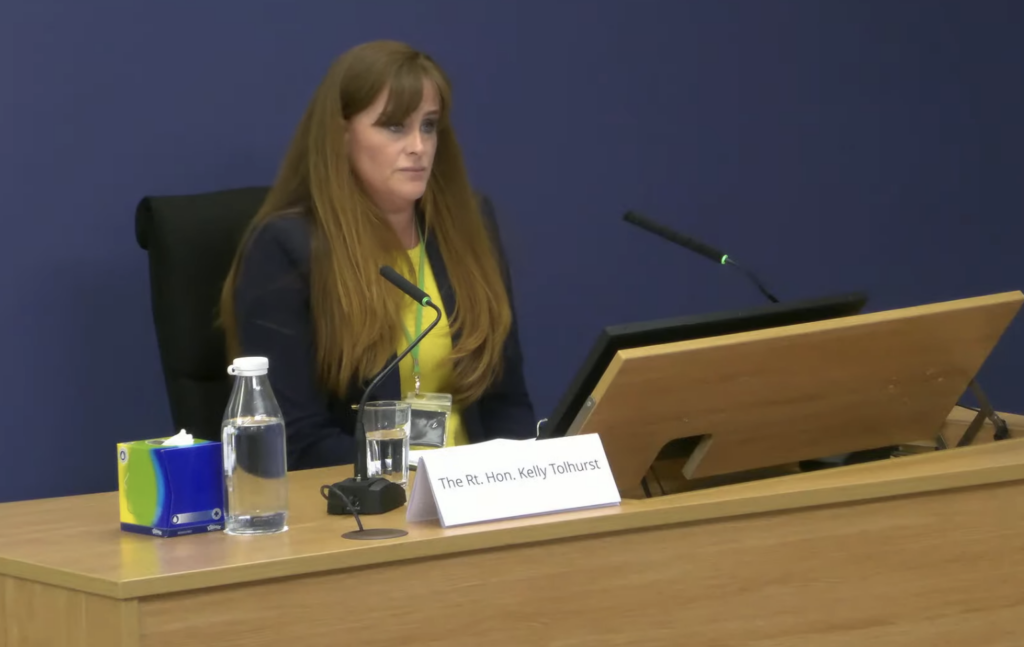
Kelly Tolhurst, who gave evidence in the afternoon, was altogether different. She appeared to act and think like a normal human being. In 2015, with 17 years running her own business behind her, she was elected as an MP. By July 2018 she was in government. By 2022 she was on the backbenches. Earlier this month she failed to get re-elected.
Tolhurst’s brief reign as Post Office minister within BEIS (the business department) was characterised by inexperience and a naive trust that the Post Office and her advisors were acting objectively or, at the very least, in good faith. When she realised she was being given incomplete and partial information, she got hemmed in by her own inability or unwillingness to act. Tolhurst told the Inquiry’s Emma Price she had a vast portfolio (split between two people after she left) and multiple sources of information: her private office, the UKGI shareholder team and the BEIS Post Office policy team.
The first thing Tolhurst had to do was sign an information-sharing protocol which restricted her ability to share information about the Bates v Post Office litigation. She told Price she found that weird. “Even me coming in as a lay person, I thought ‘Well, hang on a second, if I am the minister responsible why do I have to sign a document to say that I’m not going to share [anything] so that I can be given that information, when actually we are the shareholder, we own the organisation?’”
Early in her tenure, Tolhurst received a document which made clear some of the risks of litigation. But when she had a meeting about the Bates v Post Office strategy with Post Office execs and lawyers in October 2018 (which BEIS and UKGI officials saw as a good opportunity for her to challenge the Post Office’s position), Tolhurst rolled over.
“This was the first big meeting that I had had with the Post Office to talk about the litigation in any kind of detail and I was just formulating my views”, she told Price. “I was being given all these assurances… I felt that the people that were briefing me were relatively confident of their position… I don’t remember at any time there was any sort of suggestion or acceptance that there was a potential for losing any kind of litigation… these individuals who had obviously spent a lot of time on it and had been working on this for a long period of time, gave me reassurance, and I didn’t have any evidence or any particular information in order to challenge what was being put in front of me at that particular time.”
Tolhurst was definitively failed by the Post Office’s deliberate unwillingness to quantify the cost of losing the group litigation. It was a question on my mind in June 2019 and I put it to both Tolhurst and Tom Cooper after a BEIS select committee hearing. Two weeks earlier, the BEIS Post Office policy team had discovered that the Post Office’s auditors were concerned that in all the litigation discussion papers “no figures were included… on the Post Office’s potential liability.”
According to her witness statement, Tolhurst was told that “providing those figures to BEIS would mean that BEIS would need to disclose those figures to the auditors and in the Post Office’s accounts. This may have the consequence of setting a floor in any settlement negotiation. Further, doing so would raise a `going concern’ issue and may lead to the auditors looking to BEIS to provide a letter of comfort that it will fund any settlement. I was reminded that POL had previously advised that they could fund compensation of between £30m and £50m and anything above this they are likely to need support from BEIS.”
Whilst I can see the concern about setting a floor in any settlement negotiation, refusing to crunch the numbers for the shareholder is corporate negligence and (further) evidence of an organisation gone rogue. If quantified, the figures would have shot straight up through the chain of command in BEIS to the Treasury, and potentially the Prime Minister. Sadly, Tolhurst did nothing about it.
Post Office Pushback
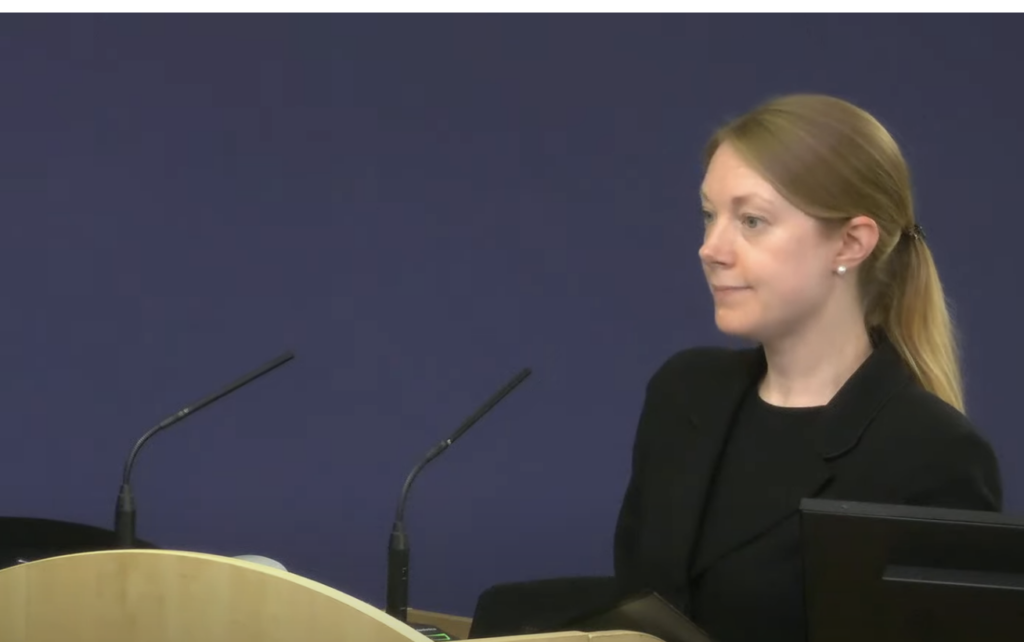
Despite having the right instincts in the immediate aftermath of the Common Issues judgment, Tolhurst was persuaded to reword a letter she sent to her parliamentary colleagues. She had initially drafted a line which said the judgment “represents a significant step forward, delivering justice for those postmasters who have been wronged“. Colleagues and lawyers at BEIS and the Prime Minister’s office changed it to say the judgment “represents a significant step towards delivering justice“, but then the Post Office saw it and kicked off, persuading Tolhurst to remove the sentence altogether on the grounds it could prejudice “the outcome of future trials”. Tolhurst told her private secretary at the time she suspected the Post Office’s reluctance to use the agreed phrase was “probably about POL not really accepting the judgement is so bad”.
In her witness statement to the Inquiry, Tolhurst wrote “Looking back now this is probably one of the areas where I should have pushed back and insisted on the original wording. The civil service team in BEIS were very good and I trusted them, but I feel that I should have been more insistent on the wording of this letter.”
A day after sending the letter Tolhurst discovered the Post Office was considering a recusal application. She wrote in her witness statement: “This must have been in their minds when they were considering my draft, but I knew nothing of it at that time”
Tolhurst claims to have been completely against the recusal application because it was “just absolutely the wrong thing for the Post Office to be doing” given the “scathing judgment” against it. She had an opportunity to make her feelings known before the recusal decision was made, but was taken to an email in which her private secretary told Tom Cooper that Tolhurst had “agreed that [she] shouldn’t do anything until after the decision has been made”.
Tolhurst told Price “I don’t I don’t believe I made a decision not to intervene and speak with the Post Office.”
“Well did you make any attempt to speak to Post Office Limited on this issue before the board meeting decision?” retorted Price.
“My belief was that… if I remember correctly that Alex Chisholm who was the then Permanent Secretary was going to speak with the board. Or not necessarily speak with the board but it was left with him. But I think you know its very clear that I definitely didn’t try and avoid or refuse to speak to Post Office Limited on this because if I had felt that I had had an opportunity to influence it, I would have taken it.”
Except, reader, as the evidence makes clear, she didn’t.
The journalism on this blog is crowdfunded. If you would like to join the “secret email” newsletter, please consider making a one-off donation. The money is used to keep the contents of this website free. You will receive irregular, but informative email updates about the Post Office Horizon IT scandal.

Leave a Reply